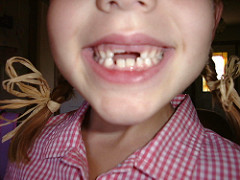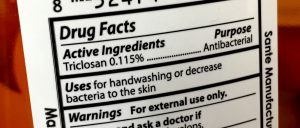 It’s a mild spring day and you’re out with your family enjoying a delicious serving of ice cream, when all of a sudden, you feel a twinge of discomfort in your front teeth from your cold dessert. You wonder, “Why did this happen – Do I have to avoid ice cream from now on?” Your local dentist says that there are ways to address your sensitive teeth, so that you can once again enjoy life. Learn about them as you read on!
It’s a mild spring day and you’re out with your family enjoying a delicious serving of ice cream, when all of a sudden, you feel a twinge of discomfort in your front teeth from your cold dessert. You wonder, “Why did this happen – Do I have to avoid ice cream from now on?” Your local dentist says that there are ways to address your sensitive teeth, so that you can once again enjoy life. Learn about them as you read on!
May 22, 2018
May 21, 2018

A Harvard-led study published in the journal, Science Translational Medicine, has determined that the use of low-powered lasers can stimulate stem cells enough to regenerate and grow rat teeth and human dental tissue. This concept may seem barbaric, but it could be a metamorphic tool in the constantly evolving world of dentistry.
Researchers have been trying to figure out new ways to use the versatility of stem cells since they exist in abundance throughout the human body. Stem cells are unique in the sense that they can become different types of cells, making them prime candidates to repair or replace damaged tissue.
Although the research is still in its earliest stages and has yet to… (Read More)
May 14, 2018

One of my great patients, Malcolm, recently sent me an article he received from his Alma Mater entitled “Risky Bristles”. Malcom wanted me to share some information with you about triclosan.
According to the Environmental Protection Agency, triclosan is an antimicrobial agent that helps to “slow or stop the growth of bacteria, fungi, and mildew.” It first started to appear in antibacterial hand soap products in the 1970’s.
Since then, according to the Center for Disease Control, “it has been used in consumer products such as detergents, soaps, skin cleansers, deodorants, lotions, creams, toothpastes, and dishwashing liquids.” Many products labeled as “antibacterial” may contain triclosan or related compounds.
One of those products that contains triclosan… (Read More)
May 7, 2018

It seems I have more and more patients telling me about their upcoming shoulder, hip, and knee replacement surgery. There are other parts that people have replaced, but those are the top three. Most of these people decide to go under the knife to improve their quality of life.
If you were born in the Paleolithic era, you could expect to live to 33 years old. The average global life expectancy in 2010 was more than double this number at 67 years. The main reasons for this are advances in hygiene, food production, and medical care.
On the bright side, if you were born in the Paleolithic era, you would most likely never need a… (Read More)
May 3, 2018

Last year I wrote a column about a study I saw in an article from over a decade ago. It was about the poor odds people have making changes in their life actually happen. The article was an outpouring of concern from healthcare experts and doctors, all looking for a way to change the behavior of people who love their lifestyle so much that they were willing to literally die from it.
In the Johns Hopkins study, 9 of 10 heart surgery patients chose to return to their unhealthy lifestyle, rather than make the changes needed to live longer. Very few were convinced by their doctors to make radical daily changes.
Based on my own… (Read More)
